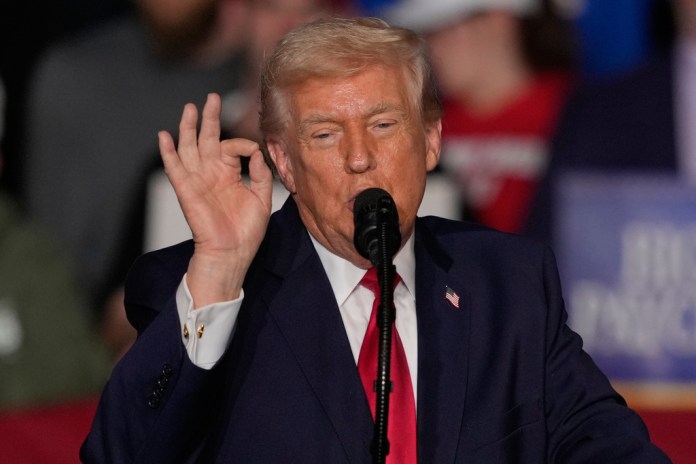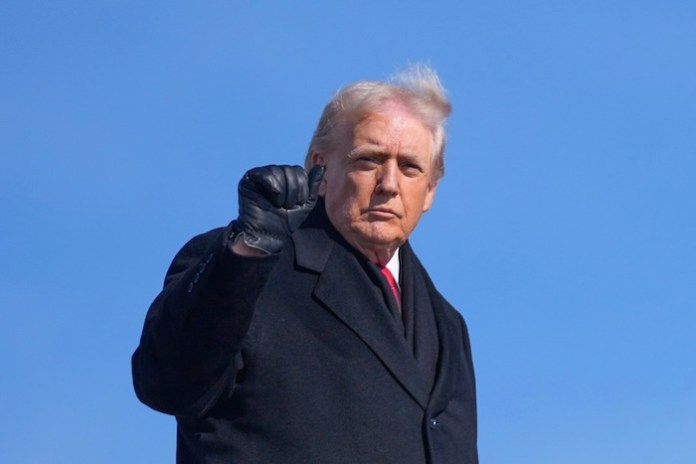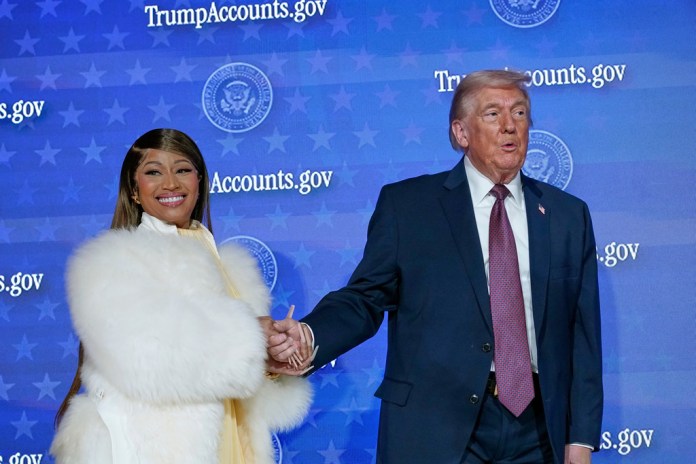Trump reduces the deficit by 4% with tariffs and his signature tax law
The article discusses how former President Donald Trump achieved a 4% reduction in the federal budget deficit for fiscal year 2025,a rare accomplishment in recent U.S. history.According to the nonpartisan Congressional Budget Office, the deficit fell by $80 billion compared to the previous year, despite a 3% rise in government spending. This improvement was driven largely by increased federal revenue, which grew by $308 billion, fueled partly by Trump’s tariffs on imports and significantly by rising wages and capital gains resulting from his deregulatory and legislative policies.
Even though the overall deficit remains high at $1.7 trillion, with a large portion of federal revenues consumed by interest payments and entitlement programs, the deficit reduction marks an unusual shift. typically,presidents expand deficits early in their terms or during crises before pursuing fiscal restraint later.Unlike his predecessors, Trump began his second term with this unexpected fiscal discipline without relying on recession-related spending cuts.
The article notes that although the deficit is still historically large, the recent spending cuts-such as reforms to federal student loan programs-contributed to a notable surplus in September 2025. The reduction is seen as a promising start, suggesting that if Trump maintained this trajectory, he could become the most fiscally conservative president of the 21st century. Though, the article also stresses that overall government spending remains a critically important challenge, especially concerning entitlement programs, requiring further Republican action to sustain fiscal progress.
Trump reduces the deficit by 4% with tariffs and his signature tax law
The jury is still out on whether Hamas will blow up the landmark ceasefire agreement that President Donald Trump‘s team negotiated to bring an end to the war in Gaza. But it’s possible that while the president was making headlines for stopping the fighting in the Middle East, he may have achieved something even more statistically improbable: reducing the deficit.
Lost in the Washington drama of the Democratic Party‘s shutdown of the federal government was the nonpartisan Congressional Budget Office‘s announcement that the federal budget deficit for fiscal 2025 actually fell by $80 billion, or 4% compared to fiscal 2024. Although outlays for the fiscal year, 75% of which occurred since the start of Trump’s second presidency, rose by 3%, federal revenue went up by $308 billion, or 6%.
Roughly a third of the revenue boom resulted from Trump’s unprecedented, near-universal tariffs on imports. Yet more than half of the revenue increase came from rising wages and realized capital gains, which, in turn, led to more income taxes paid to the Treasury. And that increased income is an obvious product of the growth unleashed by Trump’s deregulatory and legislative agenda.
A $1.7 trillion deficit, especially for a country in neither a war nor a recession, is nothing to brag about. The spending half of the balance sheet remains appalling: just two years ago, the CBO did not anticipate that net interest payments on the national debt would outpace defense spending until the start of the next decade. Instead, our $1 trillion interest bill was $160 billion greater than this year’s price tag on the Pentagon, and every $4 of $5 collected by the federal government went solely to interest payments, Social Security, Medicare, and Medicaid.
The deficit, slightly but statistically significantly, went in the right direction. And more importantly, it may be the first time this century that such a reduction has happened other than in response to a recessionary blow-out in the deficit first.
Former President Joe Biden technically reduced the deficit, but only after beginning his presidency with a $3 trillion shortfall in 2021 to fund his disastrously inflationary American Rescue Plan. Even then, Biden followed one year of deficit reduction with two years of a half-trillion-dollar deficit expansion despite the economy facing no recession or new wartime spending.
Before that, former President Barack Obama oversaw fairly sustained deficit reduction, but that was only after Tea Party Republicans forced his hand in response to his $1 trillion deficit expansion in 2009. Previously, former President George W. Bush turned the federal budget surplus he inherited from former President Bill Clinton into a post-9/11 deficit that peaked in 2004, and only after then did he make some progress bringing the deficit back down.
All of this is to say that presidents usually start their first terms blowing out the deficit, and if they ever attempt to bring it down at all, it’s only in the aftermath of some recessionary excuse to go on a taxpayer-funded spending spree. Through that lens, Trump beginning his second term with an unanticipated dose of fiscal discipline is extraordinary.
Furthermore, despite the top-line nominal cost of Trump’s One Big Beautiful Bill Act, there’s some evidence that the legislation will result in more spending cuts than anticipated.
For example, the federal budget surplus posted in September of this year was twice as large as it was in September 2024. But unlike the overall fiscal year, when greater tax collections narrowed the deficit, September’s swelling surplus was a product of spending cuts: the GOP megabill’s reforms to the federal student loan program resulted in a $124 billion spending reduction in just one month.
A $1.7 trillion deficit is still more grotesque than any other in American history before COVID-19, and even with economic expansion slated to significantly reduce the deficit as a share of GDP to lower than it was during most of Biden’s presidency. Uncle Sam’s spending binge will remain compounding until Republicans muster the stones to take entitlements off autopilot.
But a 4% deficit reduction is a remarkable start to any presidency, especially when it is attributable more to Trump’s deregulation and tax cuts than the tax hike of his tariffs. It’s a noble enough starting point, and if Trump could follow that trajectory throughout the rest of his tenure, it would indeed make him the most fiscally conservative president of the 21st century.
" Conservative News Daily does not always share or support the views and opinions expressed here; they are just those of the writer."




